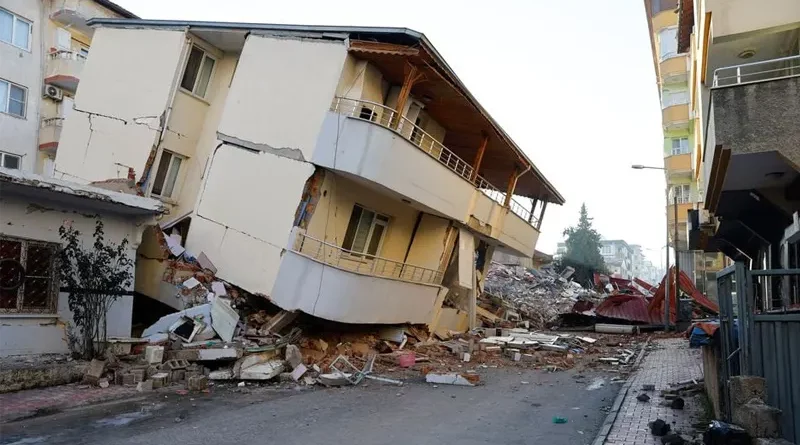Hopes fade for finding more Syria, Turkey earthquake survivors as toll climbs
ANTAKYA: The death toll from earthquakes that struck Turkey and Syria this week neared 16,000 on Thursday, as hopes faded of many people being found alive 72 hours since the disaster and frustration simmered over the slow delivery of aid.
A Turkish official said the disaster posed “very serious difficulties” to holding an election scheduled for May 14 in which President Tayyip Erdogan has been expected face the toughest challenge in his two decades in power.
On the ground, many people in Turkey and Syria spent a third night sleeping outside or in cars in freezing winter temperatures, their homes destroyed or so shaken by the quakes they were too afraid to re-enter.
The earthquake, which struck in the dead of night and was followed by powerful aftershocks, is on course to be Turkey’s deadliest since 1999, when a similarly powerful tremor killed more than 17,000.
In Turkey, footage emerged late on Wednesday of a few more survivors being rescued, including Abdulalim Muaini, who was pulled from his collapsed home in Hatay, Turkey where he had remained since Monday next to his deceased wife.
Rescue workers pulled an injured 60-year-old woman named Meral Nakir from the rubble of an apartment block in the city of Malatya, 77 hours after the first quake struck, state broadcaster TRT showed in live coverage on Thursday.
The death toll in Turkey jumped to 12,873 by Thursday morning. In Syria, already devastated by nearly 12 years of civil war, more than 3,000 people have died, according to the government and a rescue service in the rebel-held northwest.
“The death toll and injured is expected to rise much higher with many families still under collapsed buildings,” said Raed Saleh, head of the rescue service in the northwest, told Reuters on Thursday morning.
“No assistance has come yet and we are waiting today to see if any is coming,” he said.
UN aid into northwest Syria, a vital lifeline for 4 million people, is expected to begin flowing again on Thursday after the route was severed by the quake, aid officials said.
In Turkey, many have complained of a lack of equipment, expertise and support to rescue those trapped — sometimes even as they could hear cries for help.
Further slowing the relief effort, the main road into the Turkish city of Antakya was clogged with traffic as residents who had finally managed to find scarce gasoline sought to leave the disaster zone and aid trucks headed into the area.
After facing criticism over the response, Turkish President Tayyip Erdogan said on a visit to the disaster zone on Wednesday that operations were now working normally and promised no one would be left homeless.
One official told Reuters that it was now too early to discuss elections given 15% of Turks lived in the affected area. “At the moment there are very serious difficulties in holding an election on May 14,” as had been planned, he said.
Across a swathe of southern Turkey, people have sought temporary shelter and food in freezing winter weather, and waited in anguish by piles of rubble where family and friends might still lie buried.
“Where is the state? Where have they been for two days? We are begging them. Let us do it, we can get them out,” Sabiha Alinak said near a snow-covered collapsed building in the city of Malatya where her young relatives were trapped.

